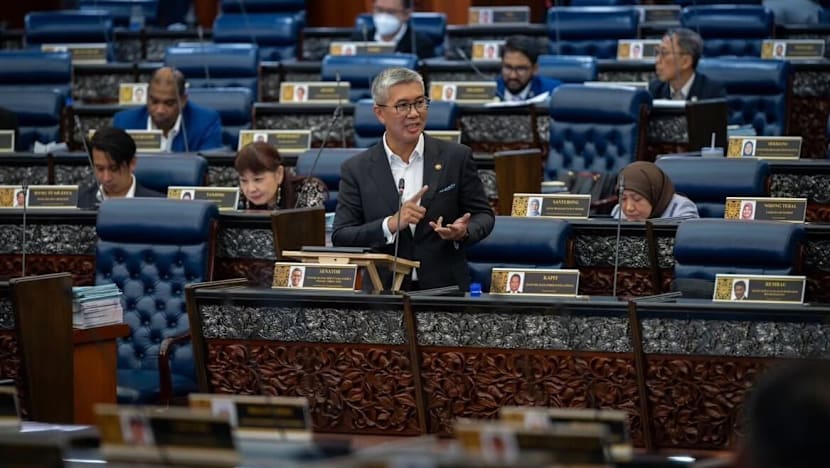A STROKE occurs when an artery that carries oxygen and nutrients to and within the brain is either blocked by a clot or bursts.
The most common type is an ischaemic stroke, which is caused by a blood clot or fatty deposits (plaques) blocking or narrowing an artery (resulting in stenosis).
Meanwhile, an haemorrhagic stroke occurs when a blood vessel in the brain leaks or ruptures.
Sometimes, there may only be a temporary disruption of blood flow to the brain.
This is known as a transient ischaemic attack (TIA), where symptoms are momentary and resolve on their own in a few minutes, or at most, within 24 hours.
The symptoms – similar to a stroke – include sudden numbness or weakness in the face, arms or legs on one side of the body, trouble speaking, vision problems in one or both eyes, dizziness, and loss of balance resulting in a sudden fall.
Often referred to as mini stroke, a TIA is actually a warning sign of a future stroke, but because the symptoms are brief, people usually just shrug them off.
A shocking discovery
This is what happened to Indonesian businessman Eddy Giantono, 74, who experienced sudden weakness on his left arm, but felt fine subsequently.
He thought nothing of it, but mentioned the incident in passing to his family members.
While Eddy is not a smoker, he has been on medications to manage his high cholesterol, high blood pressure and diabetes for the past 20 years.
In addition, he suffered a heart attack 12 years ago and had to undergo heart bypass surgery.
Due to his medical history and noting that he was getting weaker, his family immediately took him to consult a doctor in Yogyakarta, where they live.
“The doctor said I had suffered a mild stroke (TIA) and there were many blockages in my carotid arteries (blood vessels that extend from each side of the neck to the skull).
“He recommended putting stents in, but since my heart bypass surgery was performed in Penang, I decided to seek a second opinion there as I have more confidence in the Malaysian healthcare system.
“Here I was told both my carotid arteries were blocked by 95% and 75% respectively, and I needed surgery.
“My doctor then referred me to another private hospital in Klang, Selangor,” recalls Eddy in a recent interview.
Removing the plaque
Treatment options to treat a blocked carotid artery depend on the severity of the blockage.
They typically involve a combination of lifestyle changes, medication, and medical procedures or surgery.
A blockage in the right carotid artery primarily affects the left side of the body.
This is because the brain has a “crosswired” structure, meaning the right side of the brain controls the left side of the body and vice versa.
As Eddy was a high-risk patient, he was advised to do a carotid endarterectomy on the right side.
As the block in the left carotid artery had not caused any symptoms, his doctor, consultant vascular and endovascular surgeon Dr Yow Kuan Heng, decided to take a wait-and-see approach.
A carotid endarterectomy involves making an incision in the neck, opening the carotid artery and physically removing the plaque build-up before the artery is stitched closed, often with a patch to widen it.
“Initially, my father wanted to postpone the operation as I was getting married, but the surgeon firmly said no as he was in danger of getting a stroke that could be fatal.
“So although he is a stubborn man, he had no choice but to agree,” says daughter Anatasya Giantono.
The surgery, carried out in August, was successful, and Eddy was already walking the next day, determined to go home as he didn’t want to change Anatasya’s wedding date.
“Even when he was in the intensive care unit, he insisted on being discharged,” she says, laughing.
“He gets homesick easily and doesn’t like being away for long periods.”
A week after he returned home, Eddy proudly walked his firstborn down the aisle. No one could tell he had recently undergone a complicated surgery.
Today, Eddy says he is “sihat sekali” (very well) except for speaking with a
slight lisp, which Dr Yow has said will normalise in time.
The surgical scars at his neck are fading fast and he has resumed his normal routine.
Thanks to early intervention, Eddy was most likely saved from a major stroke in the nick of time.
Get assessed quickly
Atherosclerosis – the thickening or hardening of the arteries caused by a build-up of plaque in the inner lining of an artery – can affect almost any artery in the body, including those in the heart, brain, arms, legs, pelvis and kidneys.
If the build-up is in the neck, it is called carotid artery disease; in the heart, it is coronary artery disease, in the leg, it is peripheral artery disease, etc.
According to Dr Yow, carotid stenosis from narrowing in the neck area is the fastest rising cause of ischaemic stroke in the world, particularly in the Asian region.
“Traditionally, doctors from this region felt that most strokes were happening in the skull, but that pattern has now changed due to the diabetic pandemic.
“The risk of a stroke is greatest when the narrowing in the neck is higher than 50% (classified as critical carotid stenosis).
“If there is a major stroke, you need drugs to break up the clot, but for TIA, you need to see a vascular surgeon as soon as possible to get assessed by scans,” he says.
A TIA is usually an indication of an unstable plaque in an artery supplying the brain, which can rupture at any time and cause a blood clot to form.
This clot can then break off, travel to the brain and block blood flow, leading to a stroke.
“It is important for the public to know that carotid endarterectomy is the firstline treatment for symptomatic carotid stenosis.
“In surgery, you immediately clamp the artery before opening it up, but in stenting, you have to push a guided wire through a hot zone of clot.
“That process, even with protection devices or filters, has a higher rate of stroke than surgery,” explains Dr Yow.
He adds: “In Eddy’s case, after discussions with my multidisciplinary team, we decided to operate only on the side that was symptomatic because he has moderate heart failure.
“Since he had no symptoms on the left side, we didn’t touch it.
“If he develops symptoms in future, then we have to think about surgery.”
He emphasises that physiotherapy must be done as soon as possible after surgery, and on average, patients are discharged from hospital by day three.
A repeat scan of the repaired carotid artery is carried out six weeks after surgery.
So, if you experience a TIA, head to the doctor as soon as possible and request for a carotid artery ultrasound or computed tomography (CT) angiography.
Don’t delay as every minute can make a difference.
By REVATHI MURUGAPPAN starhealth@thestar.com.my
Related article:
24 Jul 2025 — Carotid artery disease occurs when fatty deposits, called plaques, clog the blood vessels that deliver blood to the brain and head (carotid ...
aning out the carotid artery, Dr Yow Kuan Heng, Health, Plaque in the neck, plaque stroke, Revathi Murugappan









